
What does the research say about how minerals effect mental health?
Minerals are the unsung heroes of brain health, playing essential roles in everything from neurotransmitter synthesis and signaling to energy production and neuroplasticity. Unfortunately, modern diets and lifestyles can leave us depleted of these critical nutrients, contributing to the rising tide of mood disorders and cognitive issues.
That’s where Hardy Nutritionals’ Daily Essential Nutrients comes in. This innovative supplement is carefully formulated to provide a comprehensive array of brain-essential minerals in highly bioavailable forms. By harnessing cutting-edge chelation technology and mineral delivery systems, Daily Essential Nutrients ensures that these nutrients reach your brain cells intact and ready to work their magic.
Let’s dive into the key minerals found in Daily Essential Nutrients and explore the science behind their mood- and mind-supporting powers:
Mighty Magnesium: The Calming Mineral
Magnesium is often called the “original chill pill” – and for good reason. This essential macromineral acts as a natural calcium channel blocker and GABA agonist in the brain, helping to calm overexcited neurons and promote a sense of relaxation (1).
Magnesium also plays a critical role in regulating the HPA axis, our central stress response system. Chronic stress can rapidly deplete magnesium stores, leading to anxiety, irritability, and sleep disturbances. Supplementing with magnesium has been shown to improve stress resilience, reduce anxiety, and promote more restful sleep (2).
Mighty Magnesium has also been studied for its ability to lift depression and stabilize mood. One randomized controlled trial found that magnesium was as effective as an antidepressant drug for treating mild-to-moderate depression, with fewer side effects (3).
Daily Essential Nutrients delivers magnesium in a chelated form bound to glycine, an amino acid that enhances its absorption. It also includes magnesium malate, a bioavailable form that’s been shown to reduce symptoms of depression and fibromyalgia (4).
Zinc: The Memory Mineral
Zinc is a trace mineral that’s absolutely essential for healthy brain function. It’s concentrated in the hippocampus, our brain’s memory center, where it plays a key role in neuroplasticity and memory consolidation (5).
Zinc is also a cofactor for over 300 enzymes involved in neurotransmitter synthesis, including serotonin and dopamine. Studies have found that zinc deficiency can lead to depression, ADHD, and aggression, while supplementing with zinc improves mood and cognition (6).
Zinc’s antidepressant properties may be due to its ability to modulate the glutamate system and protect brain cells from oxidative stress. One study found that zinc was as effective as Prozac for reducing depressive symptoms, with fewer side effects (7).
Daily Essential Nutrients contains zinc in the form of highly absorbable zinc citrate, as well as zinc picolinate and amino acid chelate. These bioavailable forms are easier for the body to utilize than cheaper zinc oxide found in many supplements.
Selenium: The Master Antioxidant
Selenium is a powerful antioxidant mineral that shields delicate brain cells from oxidative damage. It’s a key component of glutathione peroxidase, an enzyme that neutralizes harmful hydrogen peroxide and other reactive oxygen species in the brain.
Selenium is also essential for the production and activation of thyroid hormones, which regulate metabolism, energy levels, and mood. Low selenium status has been linked to thyroid disorders, depression, anxiety, and cognitive decline (8).
One study found that selenium supplementation improved mild cognitive impairment in elderly individuals, while another showed that low selenium levels increased the risk of developing Alzheimer’s (9).
Daily Essential Nutrients includes selenium in three bioavailable forms: selenomethionine, selenium amino acid chelate, and selenium picolinate. This ensures that your brain gets the selenium it needs to defend against oxidative stress and support optimal thyroid function.
Iron: The Oxygen-Boosting Brain
Nutrient Iron is a critical mineral for brain health, as it helps transport oxygen to the brain via hemoglobin in red blood cells. The brain is a highly metabolically active organ, consuming about 20% of the body’s total oxygen supply, so even mild iron deficiency can impair cognitive function (10).
Iron is also a cofactor for enzymes involved in serotonin and dopamine production. Studies have found that iron deficiency, even without anemia, can cause depression, fatigue, and attention problems. Women of childbearing age are especially at risk due to blood loss during menstruation (11).
Correcting iron deficiency with supplementation can improve mood, energy levels, and cognitive performance. However, too much iron can be toxic, so it’s important to choose bioavailable forms that are well-regulated by the body.
Daily Essential Nutrients includes iron in the form of Ferrochel® ferrous bisglycinate chelate, a highly absorbable form that’s gentle on the digestive system. It’s bound to glycine, an amino acid that enhances its uptake and reduces the risk of oxidative damage.
Manganese: The Brain’s Battery Pack
Manganese is an essential trace mineral that acts as a cofactor for enzymes involved in energy production, antioxidant defense, and neurotransmitter metabolism. It’s especially important for the synthesis of glutamine, a calming neurotransmitter that helps balance brain activity (12).
Manganese is also a component of the powerful antioxidant enzyme superoxide dismutase (SOD), which protects brain cells from oxidative damage. SOD activity is lower in people with depression, bipolar disorder, and schizophrenia, suggesting a role for manganese in mood regulation (13).
While manganese deficiency is rare, high doses from environmental sources like industrial pollution can be neurotoxic, leading to Parkinson’s-like symptoms. That’s why it’s crucial to get manganese from a trusted, pure source in the right balance with other nutrients.
Daily Essential Nutrients contains manganese citrate, a bioavailable form that’s bound to citric acid for optimal absorption. It’s carefully dosed to work synergistically with the other minerals and avoid potential toxicity.
Chromium: The Blood Sugar Boss
Chromium is a trace mineral that enhances the action of insulin, the hormone that regulates blood sugar levels. While we don’t typically think of blood sugar in relation to brain health, stable glucose levels are essential for optimal cognitive function and mood regulation (14).
The brain relies on a steady supply of glucose for fuel, but blood sugar spikes and crashes can lead to irritability, anxiety, and brain fog. Over time, insulin resistance and chronically high blood sugar can damage delicate brain structures and increase the risk of dementia (15).
Chromium helps improve insulin sensitivity and stabilize blood sugar levels, providing the brain with a steady stream of energy. It also boosts serotonin production and may help reduce cravings and binge eating. One study found that chromium supplementation improved depression, mood swings, and carb cravings in people with atypical depression (16).
Daily Essential Nutrients includes chromium in the form of chromium picolinate, a highly bioavailable form that’s been widely researched for its mood and metabolism benefits. It’s included at a safe, therapeutic dose to support optimal blood sugar balance and mental well-being.
The Mineral Synergy Difference
While all of these minerals are important for brain health on their own, the real magic happens when they work together in synergy. Just like a symphony orchestra, each mineral plays a specific role, but it’s the harmonious blend that creates the most powerful effect.
That’s where Hardy Nutritionals’ advanced formulation technology comes in. Daily Essential Nutrients utilizes a proprietary NutraTek™ mineral delivery system that binds minerals to organic molecules like amino acids, making them more stable and bioavailable than typical mineral salts.
This chelation process protects the minerals from degradation in the digestive tract and allows for slow, sustained release into the bloodstream. The result is mineral complexes that remain viable for up to 72 hours, compared to the industry standard of just 30 minutes.
This enhanced bioavailability is crucial for delivering minerals to the brain in the right forms and amounts. Many common mineral supplements use cheap, poorly absorbed forms that can end up getting flushed out without ever reaching the cells that need them.
By harnessing the power of science-backed chelation technology, Daily Essential Nutrients ensures that your brain gets the full spectrum of mineral nutrition it needs to thrive. This comprehensive, balanced approach sets it apart from typical one-size-fits-all multivitamins.
Feeding Your Brain, Fueling Your Life
The research is clear: mineral nutrition matters for mental health. From regulating neurotransmitters and brain cell signaling to powering the brain’s energy factories and defending against damaging oxidative stress, minerals are the often-overlooked foundation of a healthy, resilient brain.
But in today’s world of nutrient-depleted soils, processed foods, and chronic stress, getting enough of these essential nutrients from diet alone can be a challenge. That’s why a carefully formulated, bioavailable mineral supplement like Daily Essential Nutrients can be a game-changer for those struggling with mood issues, brain fog, and cognitive challenges.
By providing your brain with the comprehensive mineral support it needs to function at its best, you’re laying the groundwork for lifelong mental well-being. When combined with a nutrient-dense diet, healthy lifestyle habits, and appropriate psychosocial interventions, research-backed mineral supplementation can be a powerful tool for optimizing brain health and enhancing quality of life.
So if you’re ready to tap into the mighty power of minerals for your mental well-being, consider adding Daily Essential Nutrients to your wellness routine. Your brain (and your mood) will thank you.

References:
- Kirkland, A. E., Sarlo, G. L., & Holton, K. F. (2018). The Role of Magnesium in Neurological Disorders. Nutrients, 10(6), 730.
- Boyle, N. B., Lawton, C., & Dye, L. (2017). The Effects of Magnesium Supplementation on Subjective Anxiety and Stress-A Systematic Review. Nutrients, 9(5), 429.
- Tarleton, E. K., Littenberg, B., MacLean, C. D., Kennedy, A. G., & Daley, C. (2017). Role of magnesium supplementation in the treatment of depression: A randomized clinical trial. PLOS ONE, 12(6), e0180067.
- Bagis, S., Karabiber, M., As, I., Tamer, L., Erdogan, C., & Atalay, A. (2013). Is magnesium citrate treatment effective on pain, clinical parameters and functional status in patients with fibromyalgia?. Rheumatology international, 33(1), 167–172.
- Gower-Winter, S. D., & Levenson, C. W. (2012). Zinc in the central nervous system: From molecules to behavior. BioFactors, 38(3), 186–193.
- Petrilli, M. A., Kranz, T. M., Kleinhaus, K., Joe, P., Getz, M., Johnson, P., Chao, M. V., & Malaspina, D. (2017). The Emerging Role for Zinc in Depression and Psychosis. Frontiers in pharmacology, 8, 414.
- Siwek, M., Dudek, D., Paul, I. A., Sowa-Kućma, M., Zięba, A., Popik, P., Pilc, A., & Nowak, G. (2009). Zinc supplementation augments efficacy of imipramine in treatment resistant patients: a double blind, placebo-controlled study. Journal of affective disorders, 118(1-3), 187–195.
- Ventura, M., Melo, M., & Carrilho, F. (2017). Selenium and Thyroid Disease: From Pathophysiology to Treatment. International journal of endocrinology, 2017, 1297658.
- Rita Cardoso, B., Silva Bandeira, V., Jacob-Filho, W., & Franciscato Cozzolino, S. M. (2014). Selenium status in elderly: relation to cognitive decline. Journal of trace elements in medicine and biology : organ of the Society for Minerals and Trace Elements (GMS), 28(4), 422–426.
- Abbaspour, N., Hurrell, R., & Kelishadi, R. (2014). Review on iron and its importance for human health. Journal of research in medical sciences : the official journal of Isfahan University of Medical Sciences, 19(2), 164–174.
- Sheikh, M., Hantoushzadeh, S., Shariat, M., Farahani, Z., & Ebrahiminasab, O. (2017). The efficacy of early iron supplementation on postpartum depression, a randomized double-blind placebo-controlled trial. European journal of nutrition, 56(2), 901–908.
- Martinez, Y., Li, X., Liu, G., Bin, P., Yan, W., Más, D., Valdivié, M., Hu, C. A., Ren, W., & Yin, Y. (2017). The role of methionine on metabolism, oxidative stress, and diseases. Amino Acids, 49(12), 2091–2098.
- Ighodaro, O. M., & Akinloye, O. A. (2018). First line defence antioxidants-superoxide dismutase (SOD), catalase (CAT) and glutathione peroxidase (GPX): Their fundamental role in the entire antioxidant defence grid. Alexandria Journal of Medicine, 54(4), 287-293.
- Mergenthaler, P., Lindauer, U., Dienel, G. A., & Meisel, A. (2013). Sugar for the brain: the role of glucose in physiological and pathological brain function. Trends in neurosciences, 36(10), 587–597.
- Kodl, C. T., & Seaquist, E. R. (2008). Cognitive dysfunction and diabetes mellitus. Endocrine reviews, 29(4), 494–511.
- Docherty, J. P., Sack, D. A., Roffman, M., Finch, M., & Komorowski, J. R. (2005). A double-blind, placebo-controlled, exploratory trial of chromium picolinate in atypical depression: effect on carbohydrate craving. Journal of psychiatric practice, 11(5), 302–314.

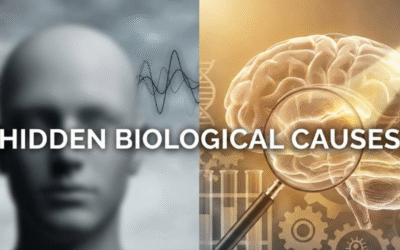
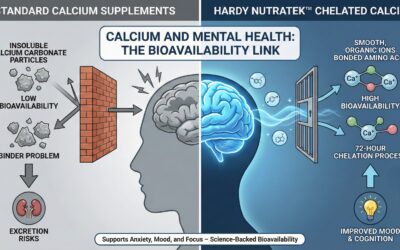
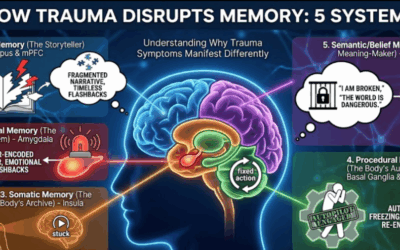
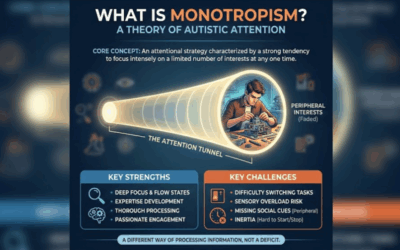
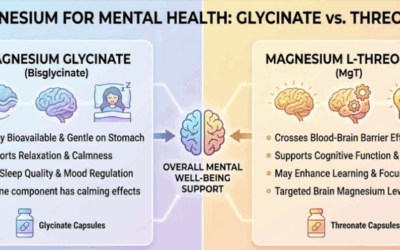


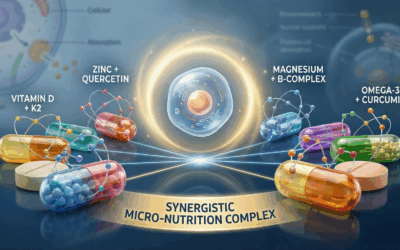
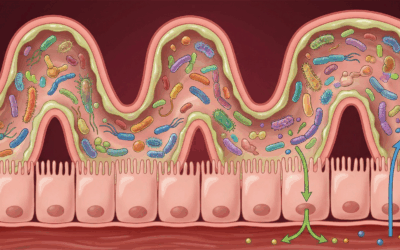
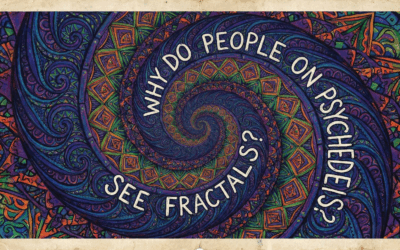

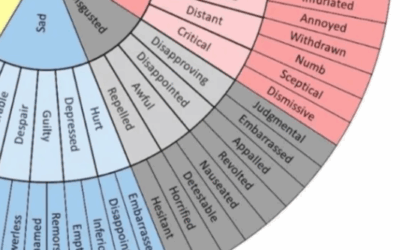



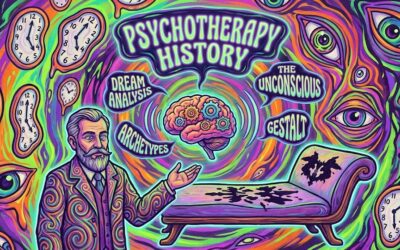
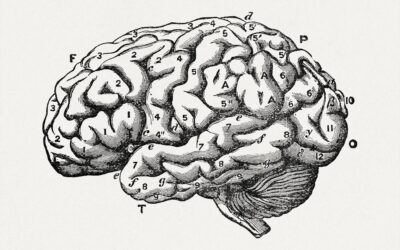




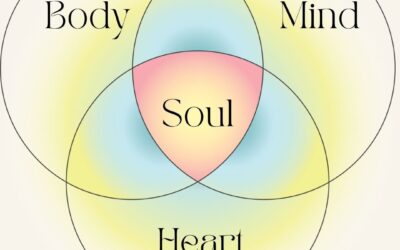



0 Comments